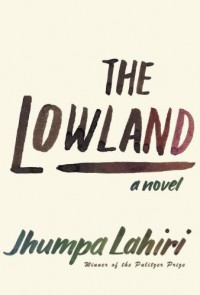7
Followers
22
Following
Ryan DeJonghe - The Avid Reader
I didn't always read, but that changed in June of 2013. I dropped the unnecessary stuff and picked up the awesome stuff--like reading! I started posting my reviews on Amazon and within a few months rose to the top 0.1% of reviewers. My reviews then went to Goodreads, and now my blog (http://ryandejonghe.wordpress.com) and Twitter (@Ryan_Reads).
If you are reading this, why not leave a comment or send me a note? I love talking to other folks about books and my reviews.
Publishers and authors, feel free to drop me a note if you want me to review your book. I usually stick to mainstream publishing, but I'll consider anything. If I review your book, I’ll give you a fair and thorough review and let you know when the review goes live. You can reach me at dejonghes@gmail.com.
Happy Reading!
The Lowland
 Some books are a pleasure to read; others are an honor. The Lowland was such an honor. Jhumpa Lahiri’s Pulitzer Prize-winning ability was on full display throughout the entire book. What amazed me—what captivated me—is Lahiri’s use of simplistic prose to create a vivid and beautiful picture. Her artistic strokes are much the same as a classical painter creating his masterpiece. In every brush is beauty and in the whole, magnificent.
Some books are a pleasure to read; others are an honor. The Lowland was such an honor. Jhumpa Lahiri’s Pulitzer Prize-winning ability was on full display throughout the entire book. What amazed me—what captivated me—is Lahiri’s use of simplistic prose to create a vivid and beautiful picture. Her artistic strokes are much the same as a classical painter creating his masterpiece. In every brush is beauty and in the whole, magnificent. Lahiri has opted to follow her fellow Pulitzer winner Cormac McCarthy and drop any usage of quotation marks to attribute dialogue (though unlike McCarthy, she has kept in the semi-colon and other punctuation that McCarthy has loathed). Because of this, the prose stands on its own. The reader’s eyes flow across the page and view the story solely on the merit of its own merit. This affected the warmth and love of the content.
And as with love, there is heartbreak—and much of it. Life is never simple and this story is true to life. The strength of The Lowland comes from careful comparison of life’s contradictions. Not only are there differences in culture from one country to the next, but there are stark differences between members of the same family unit. It is with Lahiri’s subtle ability that she is able to show that while we are all very different, we are much the same.
I found myself often highlighting passages that contrasted one life from the next. Small things, such as the footprints of the younger brother, Udayan, show up at the beginning of the book, but show significant symbolism throughout. One of my favorite passages of the novel are when the older brother, Subhash, return to their familial home and walk past those same prints, despite the home being renovated and the mango tree withered.
But everything isn’t as subtle. Some marriages are done with huge celebration, while others held in the darkened corners of secrecy. Some children are brought into the world with fanfare and welcomed upon every return; others are quietly eschewed. And differences are held on nearly every page: one brother stands up, the other sits down; one mother is absent, the other involved; one man continues his studies, the other rushes headlong. Such small nuances such as the tone and texture of different lover’s skin are held in comparison.
In all, a themed summary can be taken from a quote used in the book; the quote is from Plato: the purpose of philosophy is to teach us how to die. And as Morrie taught us: you can’t learn to live until you learn to die. Some are brought to the grave early; some are living as if already dead. Through our own choice, no matter the circumstances, income, or family history, we make decisions that affect not only our own life, but those around us. And there are no small consequences.
Yes, I would highly recommend this book. So far this year I have read a few significant and meaningful books. Among those that stand out are: The Poisonwood Bible, Tuesdays with Morrie, and The Lowland. Others I have rated highly, but only these have been life altering.


